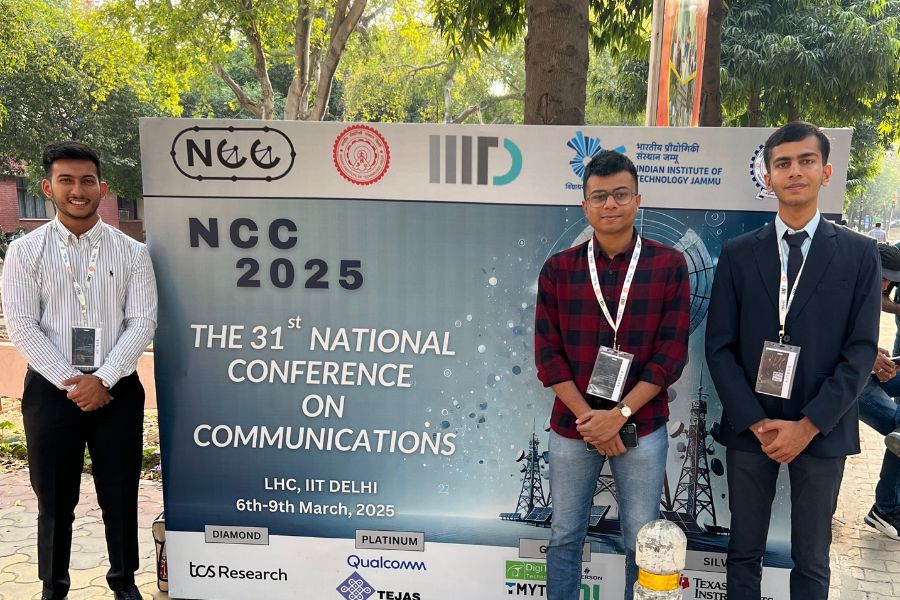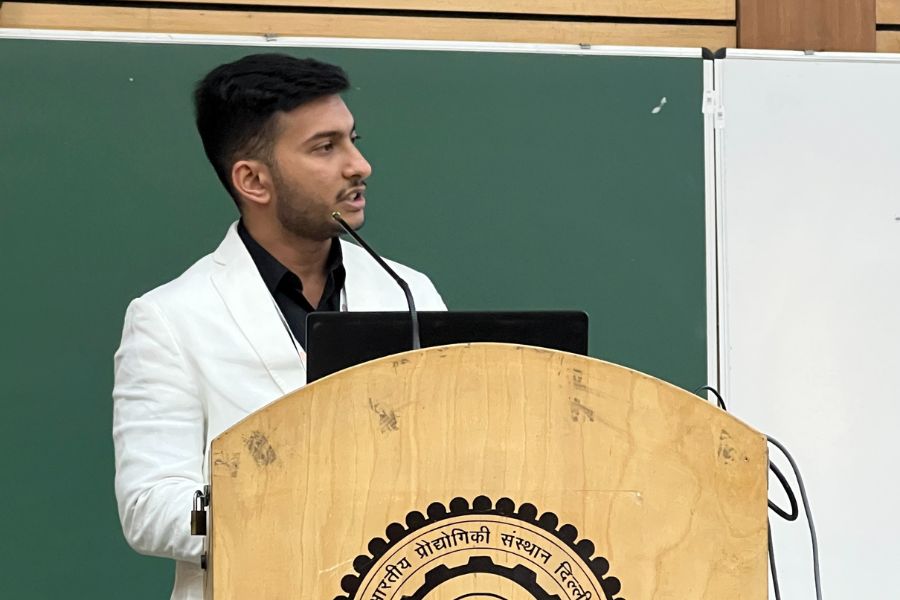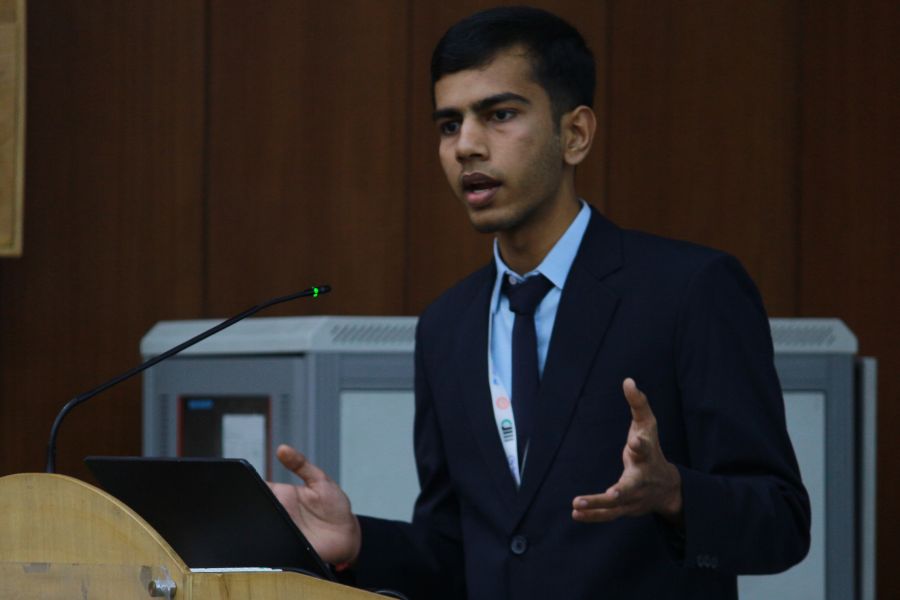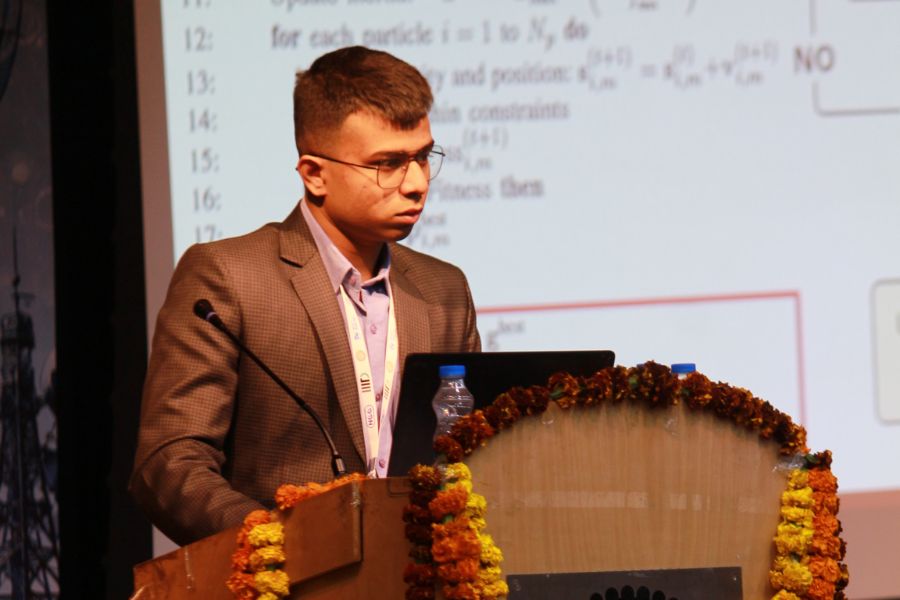10 March 2025
BTech Students Further Ahmedabad University's Pursuit for Research Excellence at NCC- 2025 Conference
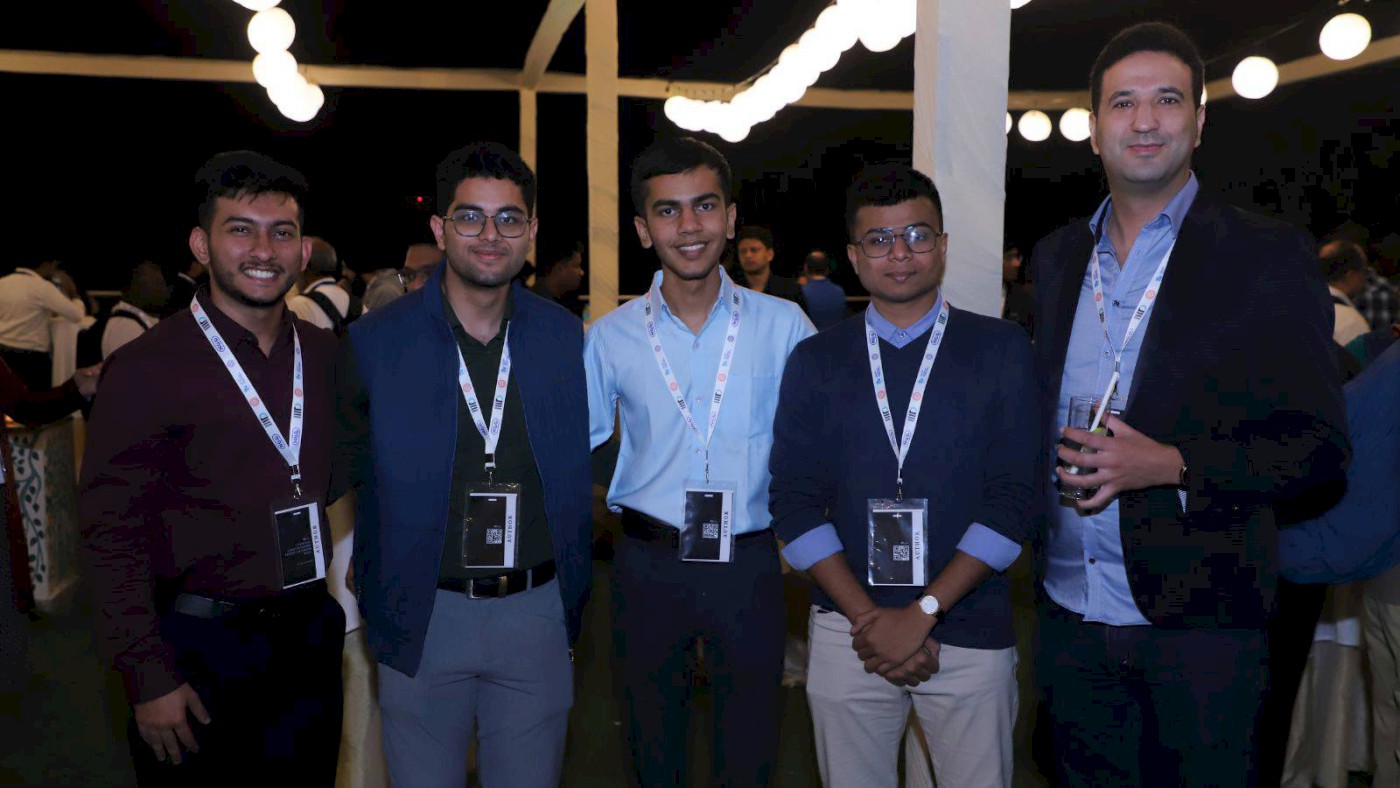
A robust research culture is intrinsic to foster research excellence, and our students have exhibited that with their recent accomplishments. Ahmedabad University’s Bachelor of Technology (BTech) Computer Science and Engineering (CSE) students, operating within the Machine Intelligence, Computing, and xG Networks (MIcXN) research laboratory, situated within the School of Engineering and Applied Science, have showcased their research at the 31st edition of the National Conference on Communications (NCC-2025).
Our students presented their findings across diverse domains, including IoT Networks, Reconfigurable Intelligent Surfaces, and Performance Evaluation and Network Modelling at the prestigious conference, jointly organised by esteemed institutions such as IIT Delhi, IIIT Delhi, IIT Jammu, and IIT Jodhpur.
Presentations included Rushi Moliya's work on "Optimising UAV Deployment for Enhanced Detection Performance in Multi-UAV Cooperative Sensing," Dhruv Premani's research on "Optimising Sum Rate in RIS-Aided Multi-User MISO Systems with Curiosity-Driven Learning," and Preet Patel's analysis of "Capacity Analysis of Vehicular Networks in a Multi-User Mixed Traffic Scenario." These contributions will be published in the conference proceedings on IEEE Xplore, further disseminating their valuable insights.
Recent investigations into enhancing target detection accuracy within multi-Unmanned Aerial Vehicle (UAV) systems have yielded significant advancements. Rushi’s study proposes that the Particle Swarm Optimisation (PSO) algorithm effectively optimises UAV deployment and antenna orientation, leading to enhanced detection probability in dynamic environments and outperforming existing methodologies. The research, authored in collaboration with faculty and researchers from Ahmedabad University, the University of Liverpool, and the University of Klagenfurt, highlights the efficacy of PSO in navigating complex optimisation challenges associated with UAV sensing. The study, titled "Optimising UAV Deployment for Enhanced Detection Performance in Multi-UAV Cooperative Sensing," establishes the potential of eigenvalue-based detection combined with optimised UAV deployment and antenna orientation for accurate cooperative sensing.
Dhruv’s research focused on enhancing communication in Reconfigurable Intelligent Surfaces (RIS)-assisted multi-user Multiple-input Single-output (MISO) systems, a domain of critical importance in complex multi-user environments. Using the sum rate as a performance metric, Dhruv employed a deep reinforcement learning (DRL) framework augmented with curiosity-based learning to optimise the RIS phase shifts and base station beamforming. The resulting algorithm, co-authored with Professor Dhaval Patel, is model-free and robust to wireless channel fluctuations, achieving a substantial 28 per cent improvement in sum rate compared to standard DRL methods. This research, titled "Optimising Sum Rate in RIS-Aided Multi-User MISO Systems with Curiosity-Driven Learning," was also presented at NCC-2025.
Finally, studies regarding the coexistence of Connected and Automated Vehicles (CAVs) and Regular Vehicles (RVs) within vehicular networks remain an area necessitating further exploration. Such studies present unique challenges in comprehending the communication capacity required to support efficient vehicle-to-vehicle (V2V) and vehicle-to-infrastructure (V2I) communication. Student Preet Patel, through his research, analysed the data capacity of cooperative vehicular networks in mixed traffic scenarios, with a focus on the impact of Roadside Units (RVs). Simulation results indicate that vehicle proportions, density, infrastructure spacing, and transmitter sensing range significantly influence network capacity. The paper, titled "Capacity Analysis of Vehicular Networks in a Multi-User Mixed Traffic Scenario," and co-authored by Professor Dhaval Patel, provides valuable insights for optimising infrastructure deployment and network configurations to ensure reliable vehicle communication. Preet also presented his research at the NCC-2025. These research endeavours collectively illustrate the commitment to fostering innovation and excellence in engineering and applied science at Ahmedabad University.
These research endeavours show Ahmedabad University's commitment to fostering a vibrant research ecosystem. By providing students with the resources and opportunities to engage in cutting-edge research, the University empowers them to contribute meaningfully to advancing knowledge and fostering innovation.

